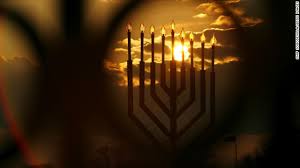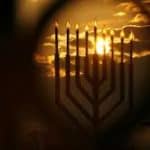Life Lessons from the Torah Reading
There are points in our lives where after years of striving and struggles one yearns for an oasis in time to rest and enjoy achievements, family and wisdom gleaned from life’s experience. Yet it seems that at those times new challenges suddenly arise and new difficulties need to be engaged. In the “disconnect” between desire and reality frustration grows. In the midst of that frustration new opportunities can regrettably be missed
Jacob is over 100 years old as he settles in the land of Canaan with his growing family. He has had to endure, censure, self-doubt, lies and deceit. He has even surpassed his great spiritual test with the angel he encounters when “he remained alone:” He has also succeeded in surviving his feared encounter with Esav. It is at this point that he years to settle down.
“Jacob settled ( VaYeishev) in the land of his father’s sojournings, in the land of Canaan.”(Genesis 37:1)
The choice of the Biblical narrative to use the word Vayeishev is important.
The Gemara in Sanhedrin (106a) asserts that every time the word vayeishev is used in Tanach it foretells of difficulty and pain. As we see in the rest of the text :“Israel settled in Shittim, and the people began to commit harlotry with the daughters of Moav . They invited the people to the sacrifices of their gods, and the people ate and prostrated themselves to their gods.”( Numbers 25:1-2). VaYeshev usually refers to a lack of growth and movement. They become used to where they were both spiritually and physically. A person can never remain standing and thereby become stuck or stagnant. Either he is progressing or he ends up regressing.
Here too in the Torah Portion of VaYeshev we read the words
” VaYeshev Yaacov -Jacob Settled” Rashi the medieval commentator points out the following
” When Jacob sought to dwell in tranquility, the troubles of Joseph sprang upon him. The righteous seek to dwell in tranquility. Said the Holy One, blessed be He, “What is prepared for the righteous in the world to come is not sufficient for them, but they seek [also] to dwell in tranquility in this world” .
There is great pain woven into this statement by Rashi .One could legitimately ask why would Yaacov’s desire for a time of rest at the age of 100 be so wrong? Surely he has earned such a period in his tempestuous life.
Jacob and his descendants were to experience trials and events that would fashion them into the vessel they needed to become. Yaacov’s life and that of his descendants were intended to be a life of purpose and instruction. In the midst these trials Jacob and his descendants would not only find their destiny and their calling but great direction would be set for the woreld.
The Midrash Rabba writes “The sons of Jacob were engaged in selling Joseph, Jacob was taken up with his sackcloth and fasting, and Judah was busy taking a wife, while the Holy One, blessed be He, was creating the light of Messiach. (Peretz, born of Judah and Tamar, is the ancestor of King David and the Messiah.)
Yaacov was not being punished for wanting to rest and settle down. He was being prodded and pushed towards that higher level of destiny.
It is therefore not coincidence that the torah portion is usually read before the festival of Hanukkah.
On the festival of Chanukah, we celebrate the victory of the small army of Maccabees over the oppressive Greek warlords. It was the victory of the small group of faithful against the large hordes of the faithless. Miraculously, the few overwhelmed the many.
Yet, the focus of the festival of Chanukah seems to highlight the smaller miracle of the jar of oil. The little jar of oil that was found untouched and pure, and that had enough oil to last for one day, lasted, in fact, for the eight days needed to produce more oil.
Why such an emphasis on this small though wonderful miracle, as opposed to the great victory of the few against the many. The military victory represented the end of spiritual and physical domination, while the jar of oil “simply” ensured the continuance of the light
The Netivot Shalom explains that the light is the point. The greatest threat to our world is darkness. It is in darkness that what is right is mired within the swamp of all that is wrong. It is in the shadows that evil attempts to present itself as goodness.
In the text describing the creation of the world we read “And there was evening and there was morning.”(Genesis 1:5).Darkness seems to always precede the light? Why should that be.
The turmoil that helps the people of Israel forward, goes through the frightening lows of sibling hatred and malicious scheming. Why must that be? Why do the Jewish people need to descend into Egypt and slavery before they are to become the people of G-d’s story? Why does this plan of destiny descend into such valleys of despair, pain and loss before it truly unfolds? Why does darkness have to precede the blossoming of light?
In truth, without darkness one cannot perceive light. In fact in places in the world wherein there is too much light and glitter, “true light” becomes lost and hidden. The prophet Isaiah says “And I will give you the treasures of darkness, and hidden riches of secret places, that you may know that I am Hashem, who calls you by thy name, even the G-d of Israel.( Isaiah 45:3 ). The prophet describes the “treasures of Darkness” because darkness enable us to percieve the knowledge that” that I am Hashem, who calls you by thy name, even the G-d of Israel”
Isaiah again says” I form (Yotzer)the light, and create ( Boreh)darkness; I make peace, and create evil; I am Hashem, that does all these things.”( ibid:7).
To” create” is to create ex-nihilo- something from nothing. To”form” is to refashion from what was. In fact it would be correct to assume that G-d’s supernal light always existed, and that darkness was created later.
Darkness was created to help define light. Yet without the act of lighting a candle in that darkness, the darkness remains overwhelming. In the words of Maran Harav Kook” …the purely righteous do not complain of the dark, but rather increase the light; (Arpilei Tohar p. 27
G-d used the jar of oil as a signature, to clarify the author of all miracles. Yet it also gave the individual whether he be a Jacob, a Joseph or any one of us the reach for that candle to push away all that infinite darkness
LeRefuat Yehudit bat Golda Yocheved

